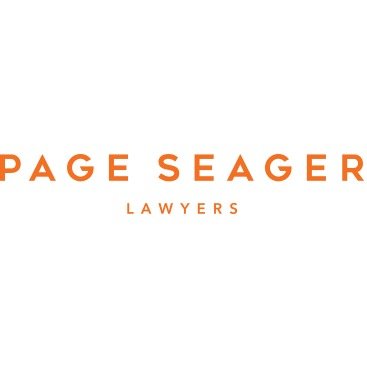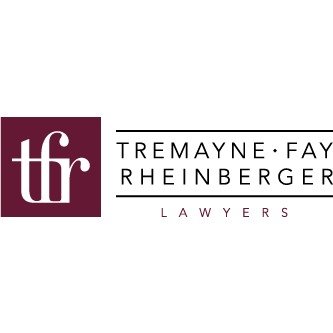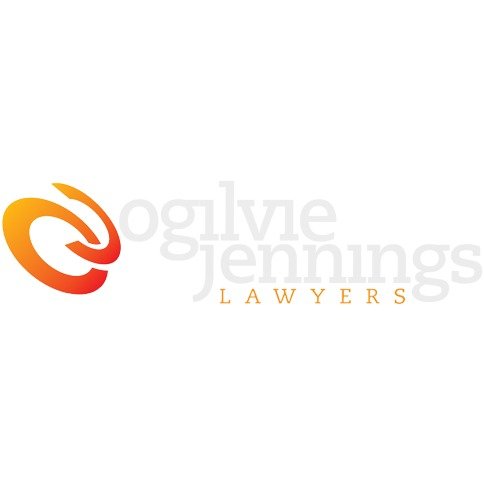Best Employment Rights Lawyers in Hobart
Share your needs with us, get contacted by law firms.
Free. Takes 2 min.
List of the best lawyers in Hobart, Australia
About Employment Rights Law in Hobart, Australia
Employment Rights Law in Hobart, Australia, is designed to protect the rights and obligations of both employees and employers. These laws govern various aspects of employment such as wages, working hours, leave entitlements, termination, discrimination, and workplace safety. Employment laws in Tasmania, and by extension Hobart, are influenced by both state and federal legislation, including the Fair Work Act 2009, which provides a framework for fair workplace practices.
Why You May Need a Lawyer
There are several scenarios where individuals might require legal advice regarding Employment Rights:
- **Unfair Dismissal:** If you believe you have been terminated from your job unfairly, a lawyer can help you assess your situation and seek remedies.
- **Discrimination and Harassment:** Experiencing harassment or discrimination at work based on age, gender, race, or other protected characteristics can merit legal action.
- **Breach of Contract:** If your employer has violated the terms of your employment contract, legal guidance can be crucial in addressing the breach.
- **Wage and Hour Disputes:** Legal assistance can be sought if issues arise regarding overtime payment, minimum wage compliance, or misclassification of employment status.
- **Workplace Health and Safety:** If your workplace conditions are unsafe, or if you are injured at work, legal advice can help ensure proper compliance with safety regulations and compensation.
Local Laws Overview
Tasmania's Employment Rights are regulated under both state and federal laws. Key aspects include:
- **Fair Work Act 2009:** This federal act outlines the minimum standards for work conditions, pay, and workplace rights. It applies to most Tasmanian workplaces.
- **Industrial Relations Act 1984 (Tasmania):** This act addresses issues around industrial relations within Tasmania, including procedures for resolving disputes between employers and employees.
- **Anti-Discrimination Act 1998 (Tasmania):** This act prohibits discrimination and promotes equity and equal opportunity in the workplace.
- **Workplace Health and Safety Act 2012 (Tasmania):** Ensures safe and healthy working conditions for all employees.
Frequently Asked Questions
What are my basic rights as an employee in Hobart?
You are entitled to fundamental rights such as minimum wage, paid leave, safe working conditions, and protection against discrimination and unfair dismissal.
What should I do if I am unfairly dismissed?
You can file an application with the Fair Work Commission within 21 days of your dismissal. Consider seeking legal advice to understand your options.
Can I take legal action if I face discrimination at work?
Yes, legal action can be taken under the Anti-Discrimination Act 1998, and it's advisable to consult with a lawyer to evaluate your case.
How can I ensure my workplace is compliant with health and safety standards?
Employers are required by law to comply with safety standards. If you suspect non-compliance, report it to Workplace Standards Tasmania.
What recourse do I have if I am not paid correctly?
If you're underpaid, you may contact the Fair Work Ombudsman for advice and take steps to recover the unpaid wages.
Can my employer change my employment terms without my consent?
Any amendments to your employment contract must be agreed upon by both parties. Consult a lawyer if changes are made unilaterally.
What is a redundancy, and what are my rights?
Redundancy occurs when a job position is no longer required. You may be entitled to redundancy pay and notice, depending on your employment terms.
How do I report unsafe working conditions?
You should report unsafe conditions to your employer initially. If not addressed, contact Workplace Standards Tasmania.
What are the different types of employment contracts in Hobart?
Common contract types include permanent, casual, part-time, fixed-term, and freelance contracts, each offering different rights and obligations.
How can I resolve disputes with my employer?
Many disputes can be resolved through internal grievance procedures or mediation. Legal advice may be necessary if the dispute cannot be resolved internally.
Additional Resources
- **Fair Work Ombudsman:** Provides information and advice about workplace rights and laws in Australia.
- **WorkSafe Tasmania:** Offers guidelines and support for occupational health and safety issues.
- **Legal Aid Commission of Tasmania:** Provides free legal assistance and guidance for employment-related issues.
- **Anti-Discrimination Commissioner Tasmania:** Assists with complaints and promoting understanding around discrimination protection.
Next Steps
If you need legal assistance regarding Employment Rights, consider the following steps:
- Collect and organize relevant documentation, such as your employment contract, payslips, and correspondence with your employer.
- Seek initial advice from free resources or helplines to understand the basic legal standings of your situation.
- Schedule a consultation with a qualified employment lawyer to discuss your case in-depth and explore potential legal actions.
- Explore alternative dispute resolution options like mediation if advised.
Taking proactive steps and seeking informed legal guidance can help protect your rights and address any employment issues effectively.
Lawzana helps you find the best lawyers and law firms in Hobart through a curated and pre-screened list of qualified legal professionals. Our platform offers rankings and detailed profiles of attorneys and law firms, allowing you to compare based on practice areas, including Employment Rights, experience, and client feedback.
Each profile includes a description of the firm's areas of practice, client reviews, team members and partners, year of establishment, spoken languages, office locations, contact information, social media presence, and any published articles or resources. Most firms on our platform speak English and are experienced in both local and international legal matters.
Get a quote from top-rated law firms in Hobart, Australia — quickly, securely, and without unnecessary hassle.
Disclaimer:
The information provided on this page is for general informational purposes only and does not constitute legal advice. While we strive to ensure the accuracy and relevance of the content, legal information may change over time, and interpretations of the law can vary. You should always consult with a qualified legal professional for advice specific to your situation.
We disclaim all liability for actions taken or not taken based on the content of this page. If you believe any information is incorrect or outdated, please contact us, and we will review and update it where appropriate.
















